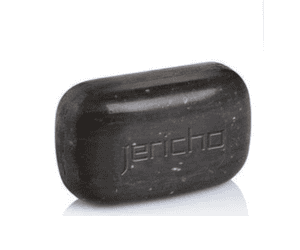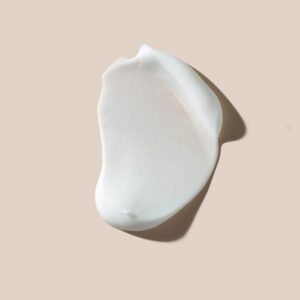The Importance of Minerals for the Body
Minerals are essential nutrients that play a vital role in maintaining our overall health and well-being. These inorganic compounds are responsible for a wide range of functions within the body, from supporting bone and muscle development to regulating hormone levels and aiding in the proper functioning of the nervous system.
Without adequate mineral intake, our bodies can experience a variety of imbalances and deficiencies that can lead to a host of health problems.
One of the primary functions of minerals is their role in the production and utilization of energy. Minerals such as iron, copper, and magnesium are involved in the process of converting the food we consume into usable energy for our cells, best multivitamins also play an important role in building energy.
This energy is then used to power our daily activities, from physical exercise to mental tasks. When we experience a deficiency in these essential minerals, we may feel fatigued, lethargic, and unable to function at our best.
In addition to their role in energy production, minerals are also crucial for the maintenance of strong, healthy bones and teeth. Calcium, phosphorus, and magnesium are just a few of the minerals that work together to promote bone density and prevent the development of conditions like osteoporosis.
Without adequate mineral intake, our bones can become weak and prone to fractures, leading to a decreased quality of life and increased risk of injury.
Key Minerals for Optimal Health
While there are a variety of essential minerals that contribute to our overall health, some stand out as particularly important for maintaining optimal well-being. These include:
Calcium: Calcium is the most abundant mineral in the human body and is essential for the development and maintenance of strong bones and teeth. It also plays a crucial role in muscle function, nerve transmission, and blood clotting.
Iron: Iron is a vital mineral that is responsible for the production of hemoglobin, the protein in red blood cells that carries oxygen throughout the body. Iron deficiency can lead to anemia, a condition characterized by fatigue, weakness, and a decreased ability to fight off infections. It is vital for IVF pregnancy treatment.
Magnesium: Magnesium is involved in over 300 enzymatic reactions in the body and is essential for maintaining healthy nerve and muscle function, regulating blood sugar levels, and supporting the immune system. It also plays a role in the production of energy and the synthesis of DNA and RNA.
Zinc: Zinc is a crucial mineral for immune function, wound healing, and the maintenance of healthy skin, hair, and nails, widely used in the PRP treatments. It is also involved in the production of hormones and the regulation of gene expression.
Selenium: Selenium is a powerful antioxidant that helps to protect the body from oxidative stress and supports the proper functioning of the thyroid gland. It also plays a role in the regulation of the immune system and the prevention of certain types of cancer.
By ensuring that we consume adequate amounts of these key minerals, we can support our bodies’ natural processes and promote overall health and well being. However, it’s important to note that the optimal intake of minerals can vary depending on factors such as age, gender, and individual health status. Consulting with a healthcare professional can help to ensure that we are meeting our specific mineral needs.
The Benefits of Herbs for Overall Well-being
While minerals are essential for maintaining the structural and functional integrity of our bodies, herbs can offer a complementary approach to supporting our overall health and well-being.
Herbs have been used for centuries in traditional medicine systems around the world, and their therapeutic properties have been the subject of extensive research and scientific study.
One of the primary benefits of incorporating herbs into our daily routine is their ability to support the body’s natural systems. Many herbs possess anti-inflammatory, antioxidant, and immune-boosting properties, which can help to prevent and manage a variety of health conditions.
For example, turmeric, a vibrant yellow spice commonly used in Indian cuisine, has been shown to have powerful anti-inflammatory effects that can help to reduce the symptoms of conditions like arthritis, Crohn’s disease, and even certain types of cancer and helps in skin whitening.
In addition to their medicinal properties, herbs can also offer a more holistic approach to wellness by addressing the mind-body connection. Certain herbs, such as chamomile and lavender, are known for their calming and relaxing effects, which can help to reduce stress and promote better sleep.
By incorporating these herbs into our daily lives, we can support our emotional and mental well-being, in addition to our physical health.
Popular Herbs for Specific Health Concerns
While there are countless herbs with a wide range of therapeutic benefits, some have gained particular popularity for their ability to address specific health concerns. These include:
Turmeric: As mentioned earlier, turmeric is a powerful anti-inflammatory herb that can help to reduce the symptoms of conditions like arthritis, Crohn’s disease, and certain types of cancer.
It is also known for its antioxidant properties, which can help to protect the body from oxidative stress and support overall cellular health.
Ginger: Ginger is a versatile herb with a long history of use in traditional medicine systems. It is known for its ability to soothe the digestive system, reduce nausea, and alleviate the symptoms of certain respiratory conditions.
Ginger also has anti-inflammatory properties that can help to reduce pain and swelling.
Echinacea: Echinacea is a well-known immune-boosting herb that can help to prevent and reduce the severity of colds and flu. It works by stimulating the production of white blood cells, which are responsible for fighting off infections and illnesses. Echinacea also has anti inflammatory properties that can help to reduce the symptoms of certain respiratory conditions.
Chamomile: Chamomile is a gentle, calming herb that is often used to promote relaxation and improve sleep quality. It is known for its anti-anxiety and anti-inflammatory properties, which can help to reduce stress and support overall well-being. Chamomile is also commonly used to soothe digestive issues and reduce the symptoms of certain skin conditions.
Valerian: Valerian is an herb that is often used to promote better sleep and reduce the symptoms of anxiety and insomnia. It works by increasing the levels of gamma-aminobutyric acid (GABA) in the brain, which can help to calm the nervous system and promote a sense of relaxation.
By incorporating these and other herbs into our daily routines, we can support our bodies’ natural systems and address a wide range of health concerns in a more natural and holistic way.
How to Incorporate Minerals and Herbs into your Daily Routine
Incorporating minerals and herbs into your daily routine can be a simple and effective way to support your overall health and well-being. Here are some tips to help you get started:
Supplements: One of the easiest ways to ensure that you are getting the right balance of minerals and herbs is to take high-quality supplements. Look for products that contain a blend of essential minerals, such as calcium, magnesium, and zinc, along with a variety of beneficial herbs, such as turmeric, ginger, and Echinacea.
Be sure to follow the recommended dosage and consult with a healthcare professional if you have any concerns or pre-existing conditions.
Dietary changes: In addition to supplements, you can also incorporate minerals and herbs into your daily diet. Foods like leafy greens, nuts and seeds, seafood, and beans are all excellent sources of essential minerals. You can also add herbs and spices to your meals, such as turmeric, ginger, and garlic, to take advantage of their therapeutic properties.
Herbal teas: Drinking herbal teas is a great way to incorporate a variety of beneficial herbs into your daily routine. Look for teas that contain herbs like chamomile, valerian, and lemon balm, which can help to promote relaxation and improve sleep quality. You can also experiment with blending different herbs to create your own unique tea concoctions.
Topical applications: Some herbs can also be used topically to address specific health concerns. For example, you can create a soothing salve or ointment using herbs like lavender, calendula, and St. John’s Wort to help reduce inflammation and promote healing. These topical applications can be particularly helpful for addressing skin conditions or joint pain.
Lifestyle changes: In addition to incorporating minerals and herbs into your daily routine, it’s also important to consider other lifestyle factors that can impact your overall health and well-being. This may include getting enough sleep, managing stress, and engaging in regular physical activity. By adopting a holistic approach to your health, you can maximize the benefits of minerals and herbs and support your body’s natural systems more effectively.
Recipes and Remedies using Minerals and Herbs
One of the best ways to incorporate minerals and herbs into your daily routine is through the use of delicious and nourishing recipes and remedies. Here are a few examples to get you started:
Turmeric Latte: Combine 1 cup of milk (dairy or non-dairy), 1 teaspoon of ground turmeric, 1/2 teaspoon of ground ginger, and a pinch of black pepper. Heat the mixture until hot, then whisk vigorously to create a frothy latte. This warming drink can help to reduce inflammation and boost the immune system.
Chamomile and Valerian Tea: Steep 1 teaspoon of dried chamomile flowers and 1 teaspoon of dried valerian root in 1 cup of hot water for 5-7 minutes. Strain and enjoy this soothing tea before bedtime to promote relaxation and improve sleep quality.
Ginger and Honey Immune Booster: Grate 1 inch of fresh ginger and mix it with 1 tablespoon of raw honey. Take this mixture by the spoonful as needed to help soothe the throat, reduce inflammation, and support the immune system.
Mineral-Rich Smoothie: Blend together 1 cup of spinach or kale, 1 banana, 1 cup of almond milk, 1 tablespoon of almond butter, and a pinch of cinnamon. This nutrient-dense smoothie is packed with essential minerals like calcium, magnesium, and iron, as well as beneficial herbs like cinnamon, which can help to regulate blood sugar levels.
Lavender and Calendula Salve: In a double boiler, melt 1/2 cup of coconut oil and 1/4 cup of beeswax. Remove from heat and stir in 2 tablespoons of dried lavender flowers and 2 tablespoons of dried calendula petals. Pour the mixture into a jar or tin and allow it to cool and harden. Use this soothing salve to help reduce inflammation, promote healing, and soothe the skin.
By incorporating these and other mineral- and herb-infused recipes and remedies into your daily routine, you can support your body’s natural systems and promote overall health and well-being.
Potential Side Effects and Precautions when using Minerals and Herbs
While minerals and herbs can be incredibly beneficial for our health, it’s important to be mindful of potential side effects and precautions when using them. Here are a few things to keep in mind:
Interactions with medications: Some minerals and herbs can interact with certain medications, either enhancing or diminishing their effects. For example, St. John’s Wort can interfere with the effectiveness of birth control pills, antidepressants, and other medications. It’s important to consult with a healthcare professional before starting any new mineral or herb regimen, especially if you are currently taking prescription medications.
Allergic reactions: Some people may be allergic or sensitive to certain minerals or herbs. It’s always a good idea to start with a small dose and monitor your body’s response before increasing the amount. If you experience any adverse reactions, such as rash, digestive issues, or breathing difficulties, discontinue use and seek medical attention.
Dosage concerns: It’s important to follow the recommended dosage guidelines for any mineral or herb supplement you are taking. Taking too much of certain minerals, such as iron or zinc, can lead to side effects like nausea, constipation, or abdominal pain. Likewise, some herbs, like valerian or kava, can have sedative effects if taken in excess.
Pregnancy and breastfeeding: Some minerals and herbs may not be safe for use during pregnancy or breastfeeding. It’s important to consult with a healthcare professional before using any supplements, especially if you are pregnant or nursing.
Chronic health conditions: Individuals with certain chronic health conditions, such as kidney disease, liver disease, or thyroid disorders, may need to be particularly cautious when using minerals and herbs. These conditions can affect the body’s ability to metabolize and excrete these substances, potentially leading to adverse effects.
By being mindful of these potential side effects and precautions, you can safely and effectively incorporate minerals and herbs into your daily routine to support your overall health and well-being.
Finding High-quality Mineral and Herb Products
When it comes to incorporating minerals and herbs into your daily routine, it’s important to choose high-quality products from reputable sources. Here are a few tips to help you find the best mineral and herb supplements:
Look for third-party certification: Look for supplements that have been tested and certified by independent organizations, such as the United States Pharmacopeia (USP), NSF International, or Consumer Labs. These certifications ensure that the products meet certain standards for purity, potency, and safety.
Research the brand: Take the time to research the brand and manufacturer of any mineral or herb supplement you are considering. Look for companies that have a good reputation for quality, transparency, and ethical business practices.
Consider the source: When it comes to herbs, the source and growing conditions of the plant can make a big difference in the quality and potency of the final product. Look for herbs that are organically grown, sustainably sourced, and free from pesticides and other contaminants.
Read the label: Carefully review the label of any mineral or herb supplement to ensure that it contains the ingredients you are looking for and that the dosage is appropriate for your needs. Avoid products that contain fillers, binders, or artificial additives.
Consult with a healthcare professional: If you have any specific health concerns or are taking other medications, it’s always a good idea to consult with a healthcare professional before starting any new mineral or herb regimen. They can help you choose the right products and ensure that they are safe and effective for your individual needs.
By taking the time to research and choose high-quality mineral and herb products, you can be confident that you are supporting your health and well-being in the most effective and responsible way possible.
Conclusion:
Harnessing the Power of Minerals and Herbs for a Healthier Life
In the pursuit of optimal health, the combination of minerals and herbs is a powerful and effective approach that has been used for centuries. By incorporating these essential nutrients and therapeutic plants into our daily routines, we can support our bodies’ natural systems, address specific health concerns, and promote overall well-being.
From boosting immunity and reducing inflammation to supporting digestion and promoting relaxation, the benefits of minerals and herbs are truly wide-ranging. By understanding the key roles that these nutrients and plants play in our health, we can make informed choices about how to incorporate them into our lives in a safe and effective manner.
Whether it’s through the use of high-quality supplements, nourishing recipes, or topical applications, the opportunities to harness the power of minerals and herbs are endless. By taking a holistic approach to our health and well-being, we can unlock the secrets to a more vibrant, energized, and balanced life.
So, let’s embrace the dynamic duo of minerals and herbs, and embark on a journey towards optimal health and wellness. With the right knowledge and a commitment to self-care, we can unlock the full potential of these essential nutrients and therapeutic plants, and create a healthier, happier future for ourselves and our loved ones.







